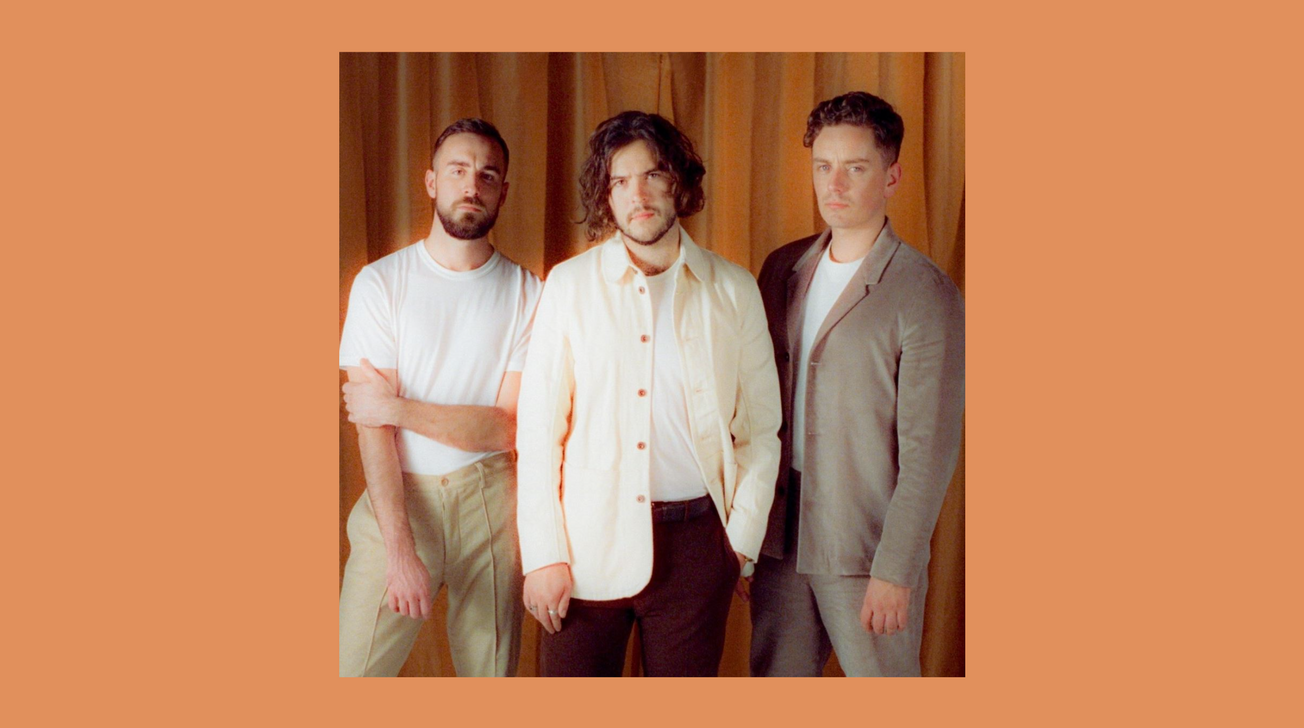By Patrick Sullivan, Co-Editor-in-Chief
Singer, Joshua ‘Joe’ Keogh, delves into how the band ditched university for their music, their difficult period between albums one and two, and how they rediscovered their sense of fun for their third release, Philophobia.
During our phonecall, Joshua ‘Joe’ Keogh rides on a train in Brussels while on the central European leg of Amber Run’s tour to promote their latest release, Philophobia. The previous night, they played a show in Amsterdam and Joe speaks - in traditional rock ‘n’ roll fashion - of being ‘a bit hungover and a bit tired’. Despite the hangover, or potentially due to it, he earnestly reflects on his up-and-down journey with the band ever since they rose to acclaim in 2013.
Today we release our third record, Philophobia: https://t.co/3DajnxaUEi
— Amber Run (@AmberRun) September 27, 2019
It’s an album about connection.
We are forever grateful for the love and support from you. We hope you enjoy the record & know that it was written with you all in mind.
Your friends,
Joe, Tom & Henry pic.twitter.com/lDvaVjyv9P
Amber Run’s music falls into the broad category of indie rock juggling mainstream, lighter appeal with the potential to unleash in live shows. I personally became a fully fledged fan after hearing their second ever single ‘Heaven’ over five years ago and the subsequent release of their sophomore EP, Spark. It wasn’t long before those releases that the then quintet were all studying degrees in Humanities at the University of Nottingham. After a big leap of faith led to their formation, they were thrusted into the limelight at Reading 2013 on the BBC Introducing stage. ‘It feels like a lifetime ago, man. We're really grateful to BBC Introducing for giving us that opportunity early on,’ Joe says.
‘The nod of approval gives a young group a lot of confidence and good music is normally bred from that. There has been a lot of hard work that goes into being a touring band, but I don't feel any differently about how much we can improve than I did when we first started the band.’
Amber Run have certainly refined their music in the past half-decade, especially when it comes to their live performances. Philophobia further focuses on ramping up the guitar parts and powerful vocals - an area of success on second album, For A Moment, I Was Lost, especially on big hitter tracks such as ‘Stranger’. However, after the success of their first album, 5AM, they were dropped by their record label and two of their original bandmates, Will Jones and Felix Archer, left the project. Joe deflates at remembering what were clearly harder times for the band, but he also displays a refreshing honesty on the subject of their emotional state during the period.
‘We were just in a funny old spot, man. It was a toughy. There were quite a few hangovers, we didn't have any money, and we felt the responsibility you have to yourself, your friends and family to feel like you're being a success. No person on the planet wants to feel like they've failed, right?
‘Nobody talked about [mental health in 2014] like they do now. I think not it wasn’t just the music, but in our personal lives as well - that's where we were. Like early 20s is a really difficult and interesting time especially for the millennial generation. There's this huge amount of expectation that we put on ourselves and this want to reach the absolute pinnacle of what we want. It comes at the cost of contentedness and you should just be pleased with what you have and be yourself.
‘But then you know, for me it feels even more dramatic and even more beautiful when you get to the moment when you're like: 'Yo, I want to write and record a third record, let's fucking go and tour it, let's do a world tour this time.' We upped the ante and changed the game for ourselves again.’
Their third album is the culmination of their revival and an indication of their resilience to stay in a precarious, competitive music scene. Joe believes this is ‘an album to be listened to live’ despite sounding ‘pretty good on record as well’. With streaming services such as Spotify diluting the revenue streams of album releases, there is a further emphasis that a good live show is what sustains careers and Joe wants more support from gig-goers.
‘Amber Run primarily dedicate ourselves to our live show. Live music is unbelievable and I’m seeing less people turning up to shows in general. People should come down to witness and experience it; there's nothing like it.’
We've given [the world tour] a go because it was inspiring for us to do it. I can't promise it'll be like this forever, but it's a lot of fun. Fundamentally, it's something we think is really important about being a band, dedicating yourself to something. If you're having a terrible time like we were during the second record, you don't want to be doing that again because the whole thing becomes a chore.’
On the differences between recording For A Moment I Was Lost and Philophobia, Joe describes a ‘free flowing and super collaborative’ process, speaking of the ease of conversation between bandmates Tom Sperring, Henry Wyeth, and himself, and the fact he can now ‘breathe again’.
Philophobia itself means ‘the fear of falling or being in love’ and it’s an apt title for a collection of cagey songs. The chicken-egg question of every cohesive album such as this is the same: did the theme come first or did the songs inspire the theme?
‘I'm a big believer that the subconscious throws out some really very accurate infestations of how you actually feel. I don't actively try and change things until five or six songs in and you notice this really clear train of thought running through the whole thing. We are really lucky with this one that the theme was very evident as the want and desperation in respect of affectionate and compassionate relationships.’


One of the methods Amber Run use for portraying their themes throughout their three major releases is non-lyrical interludes between tracks. It leads to a weaving pathway through their albums and Joe emphasises the importance of listeners being in the ‘right frame of mind’ for certain songs. They’re not just for the listeners though; Joe describes their recording process as being ‘freeing’ because it’s ‘not chained to the slavic structure of lyrics or a main melody’.
The joy which the trio are now finding in the music industry after such a difficult period is indicative of the rewards of such a career. Joe still loves his music and seems fulfilled by his and the band’s decision to ditch their degrees. There’s certainly a few among us who have sat in lectures dreaming of giving it all up to pursue their talents, and Joe has a few tips for those seriously considering it.
‘In the early years, if you believe you've got the talent then I would say it's commitment, the hours you spend putting into it, getting out of the lecture. Either leave and put all of the time you can into making music or commit fully to your studies while just enjoying it.’
Another major piece of advice from Amber Run’s journey is that you won’t make it on your own. Working with other types of artists is what Joe feels is ‘one of the most beautiful things’ about being a musician.
‘We love giving opportunities for Amber Run be a vehicle for other really talented people to showcase what they're good at as well. I don't have a fucking clue how to film a music video or take pictures or record music and we want to shout about the people that do these things for us and give them a platform make part of our project.’
After all the career troubles they’ve suffered, the selflessness and desire to get everyone involved is part of what makes Joe - and Amber Run as a band - so endearing. Unfortunately, their up-and-down journey of uncertainty is all too common in the music industry, but for them to come back and produce a barnstorming third album with a world tour is the inspiration we all need to keep plugging away if we believe in something.
Featured Image: Sonic PR
Have you ever considered dropping out of uni for a music career?









